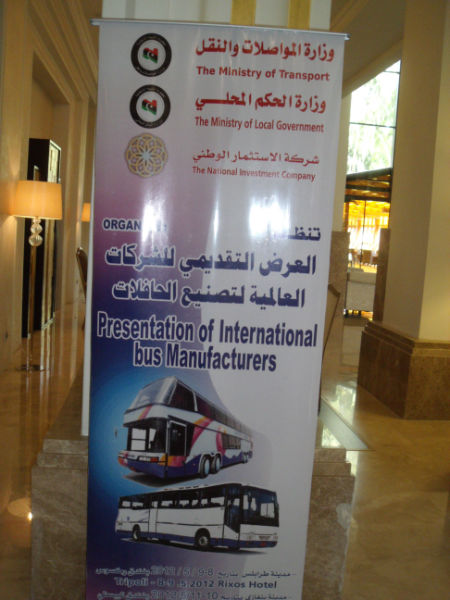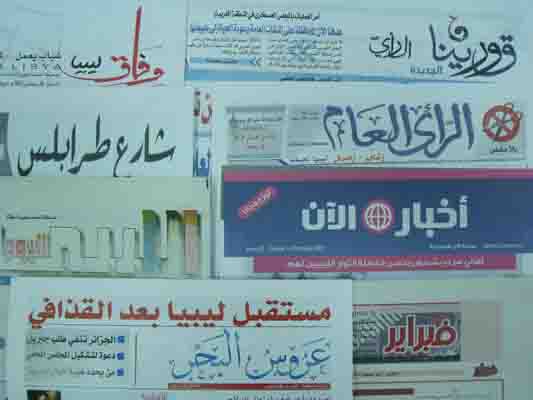By Sami Zaptia.
Tripoli, 10 May:
The Central Bank of Libya (CBL) has sent this week a circular to all banks in Libya . . .[restrict]dated 15 April and signed by its head of Currency Control Mohamed Abusenena informing them that customers wishing to officially transfer money no longer needed to make a 25 percent cash deposit .
Previously, any Libyan companies wishing to officially transfer money abroad to import certain permitted items, such as production equipment and materials, needed to deposit a 25 percent cash deposit in Libyan dinars. This condition was enforced even if the customers had the covering amount in their bank accounts.
This procedure was introduced after Liberation in an effort to solve the liquidity problem of the Revolution period caused by people hoarding cash at home.
Official bank transfers are only available for certain items deemed necessary for Libya at this stage of its post revolution recovery. Services are not part of that list.
The black market..
It is worth mentioning that there exists a large parallel black market where Libyans can transfer easily to most of the countries of the world. Most of these transfers are transacted through Dubai where a large and active Libyan community resides and plays an active role in this money market. This has been the case for quite a few years now, and started well into the era of the previous regime.
In reality, getting an official transfer is quite bureaucratic as businesses are required to get approval first from the Chamber of Commerce. Then the account holding branch transfers the request to the CBL for approval, which has been quite a time consuming process. When you add to that the previous condition of the cash deposit, it’s no wonder the Libyan economy has been slow in getting back to normal.
CBL was still acting as if Libya was in a state of war
A commercial bank manager, speaking strictly off the record to Libya Herald this week, felt that the ‘CBL was still acting as if Libya was in a state of war. The cash liquidity crisis has passed and the Currency Control Department in the CBL was still operating as if it was still under the previous regime. It still thinks it is there to control currency transfers as opposed to being there to monitor, operate and organize them. There is plenty of Libyan currency around now.’
‘It is wrong. It is slowing the economy down for no good reason’.
To reduce money smuggling and money laundering?
When asked if it was to reduce money smuggling and money laundering, the manager replied ‘those who wanted to smuggle money out of the country did it a long time ago. They don’t transfer dinars, and through banks, do they? They transfer hard currency, which they can still buy easily today in unlimited quantities on the black market.’
What about inflation?
What about inflation, could that be the reason, I enquired? ‘In the early days after Liberation, I could say yes. But prices have fallen a lot now and keeping currency controls on and encouraging the black market does not help inflation. Having a lot of goods in the market is good. It creates competition and keeps prices lower. Making it easier for businesses to import keeps prices down, not up’.
Elections…
Asked when he felt there would be an easing of currency transfers, he replied with the answer that seems to be to most of Libya’s problems these days: ‘not before the elections. They (the CBL) are too scared to make the decision to remove them (the currency controls) completely.’ [/restrict]









